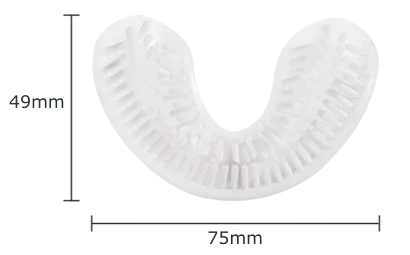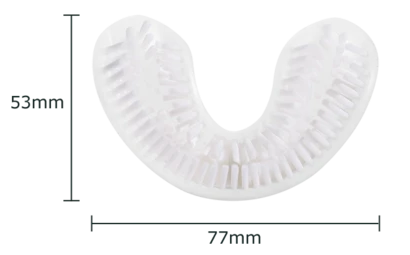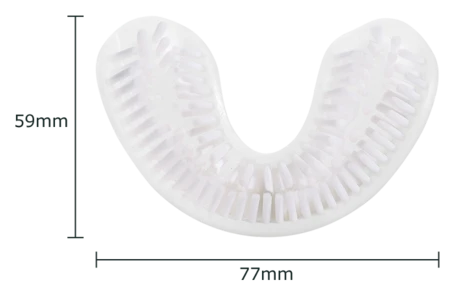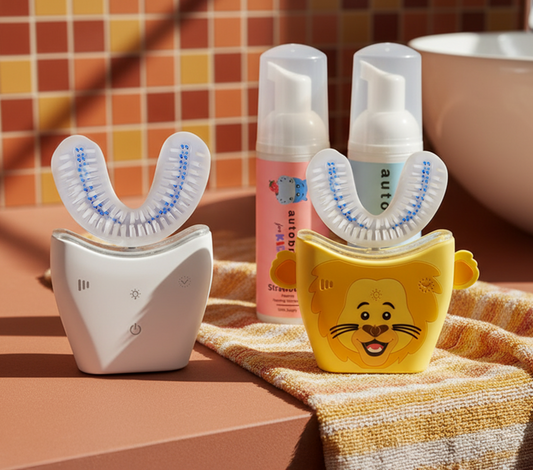
What to Do After Wisdom Tooth Removal
Wisdom teeth removal is a common dental procedure that many of us will experience at some point in our lives. These third molars usually make their grand appearance between the ages of 17 and 25. While wisdom teeth may sound like a mark of enlightenment, they often bring more trouble than wisdom! In this blog, we'll discuss what wisdom teeth are, why they're often removed, and how to take care of yourself after the procedure, focusing on diet and oral care. We'll also talk about why AutoBrush is your best friend when it comes to post-surgery oral hygiene.
What Are Wisdom Teeth?
Wisdom teeth are the last molars that erupt in your mouth and are generally the third set at the very back of each quadrant of your jaw. These teeth may have been functional for our ancestors who needed more chewing power for their coarse diets, but with evolution and changes in diet, our jaws have shrunk, often leaving insufficient space for these late bloomers.
Why Remove Wisdom Teeth?
So why do wisdom teeth frequently need to be removed? Here are some common reasons:
- Impaction: Most jaws don't have room for an extra set of molars. This often leads to impaction, where the wisdom tooth grows at an angle and becomes trapped under the gum or against the adjacent molar.
- Infection and Decay: Partially erupted wisdom teeth are difficult to clean, leading to gum infection and tooth decay.
- Pain and Discomfort: When wisdom teeth push against other teeth, they can cause pain and discomfort.
- Orthodontic Concerns: The pressure exerted by incoming wisdom teeth can undo years of orthodontic work.
Post-Procedure Care
Once the wisdom teeth are removed, your main goals are to prevent infection and minimize pain while the healing process takes place. Here's what you can do:
Pain and Swelling Management
- Ice Pack: Apply an ice pack to the affected area in 20-minute intervals.
- Pain Relief: Over-the-counter pain medications can be used, but always consult your dentist for their recommendation.
Oral Hygiene
Good oral hygiene is crucial after wisdom tooth removal to prevent infection. However, the surgical sites are sensitive and aggressive brushing could disrupt healing. This is where AutoBrush shines—it cleans 27x better than traditional brushing and is gentle on sensitive areas.
Rinsing
- Salt Water: Rinsing your mouth with warm salt water can aid in cleaning and reduce inflammation. Wait for at least 24 hours post-surgery to begin rinsing.
What to Eat
Diet plays a crucial role in your recovery process:
Soft Foods
- Mashed Potatoes: Easy to chew and swallow.
- Smoothies: Nutritious and cooling, they can help with the inflammation.
- Soups: Stick to lukewarm broths that are rich in nutrients.
Foods to Avoid
- Spicy Foods: Can irritate the surgical site.
- Crunchy Snacks: Bits can get lodged in the healing gums.
- Hot Foods and Drinks: Extreme temperatures can disrupt the healing process.
AutoBrush: The Ultimate Oral Care Companion
Manual brushing can be cumbersome and risky after wisdom teeth removal. AutoBrush offers an efficient and gentle way to maintain oral hygiene during this delicate period. With its advanced technology, it cleans all your teeth simultaneously, and its bristles are soft enough not to disturb the healing process. Most importantly, it cleans 27x better than manual brushing, ensuring that your mouth stays free from infection as you heal.
Conclusion
Wisdom teeth removal is almost like a rite of passage for many young adults. While the procedure itself is usually straightforward, post-operative care is crucial for a swift and uncomplicated recovery. Pay special attention to your diet and oral hygiene to minimize complications. AutoBrush is your best ally for maintaining exceptional oral health during your recovery phase. Its efficiency and gentleness make it the ideal choice for anyone who has recently had their wisdom teeth removed.















